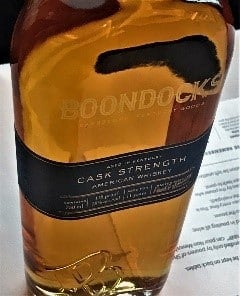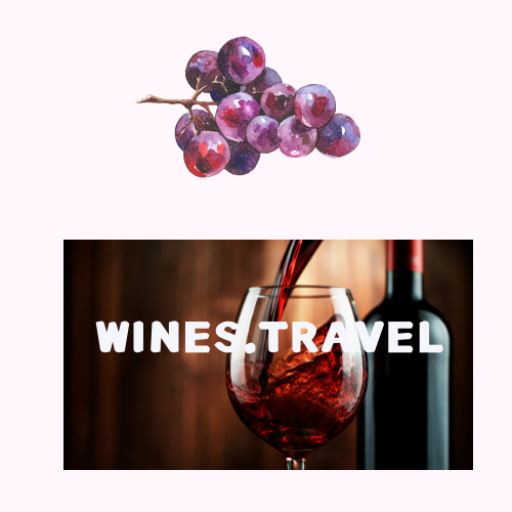
Shopping for kosher wine and food
Globally, more and more people are “going kosher,” and by 2025, the market for kosher food is predicted to be worth more than $25.6 billion. The craze for kosher food and drink is good for you and good for your soul since those items adhere to the rules and laws outlined in the Jewish Dietary Law.
Before being certified kosher, all the ingredients in the food and beverages as well as the machinery used to produce the products are carefully screened. Whether you are kosher, non-kosher, vegan, vegetarian and/or are challenged by allergies, the kosher section of supermarkets00000 and wine shops are likely to be the safest place to find ingredients for brunch, lunch and dinner. The transparency in food and beverage preparation and ingredients and the ease in identifying the kosher information on the label brings back the joy of cooking.
At the end of the day, what a hungry consumer is looking for is good food, a delicious glass of wine and a smooth scotch (or vodka, gin, etc.). The Torah addresses food by creating the laws of kashrut within the parashah (weekly Torah portion) of holiness, links food to relationships with G-d.
Nachmanides (a leading medieval Jewish scholar, Sephardic rabbi, philosopher, physician, kabbalist, and biblical commentator), noted that the traits of cruel unkosher animals transfers to the one who is eating them. The rules even advise that a woman who must eat non-kosher for medical reasons should NOT nurse her baby at the same time, but rather, find another woman to nurse (or use infant formula).
Kosher food was a serious focus at the recent Kosher Food and Wine event in New York. Many of the innovative food purveyors represented meet the demands of the gourmet and the gourmand:
• Wall Street Grill. Crispy rice, Spicy tuna and salmon, Guacamole with soy sauce, spicy mayo and jalapeno
• Marble & Grain. Beef Nigiri with Wasabi cream; Beef Carpaccio with Silan Molasses, Pistachio Dust and Pink Salt
• Pizza Biza. Chicken Aioli, Brisket and Pastrami
• Miele Gelato & Sorbet. 12 flavors of gelato, sorbet and alcohol-flavored sorbet
Knowing that a product is certified kosher enables the consumer to trust that the food on the plate is clean and healthy and does not include allergens such as shellfish. It also offers certainty for vegans as in the case of Oreo cookies, which, prior to their switch to kosher (late 1990s) contained lard (pork fat).

Kosher Wine
Not all wines are created equal.
There are many guidelines for wine producers who want to be included in the kosher section of the wine shop:
1. Vintners producing kosher wine cannot hire employees who are non-Jewish.
2. When serving kosher wine at a meal only observant Jews are permitted to serve the wine.
3. However, once wine has been cooked (mevushai in Hebrew), flash pasteurized or flash détente, and the grape must (destemmed and crushed product) is heated for a short period of time to a high temperature it is OK for non-Jews to produce, serve and enjoy the wine.
4. The mevushal process has become fashionable for wines that are not seeking a kosher designation as it is useful in removing flaws of under-ripe grapes.
5. The mevushal process permits the wine to be handled by anyone and the wine maker is not restricted to hiring only Sabbath observant Jews.
6. Most premium wines are made non-mevushal as many winemakers want total control of their wines and as little outside influence as possible on their product.
To be kosher, the yeasts and fining agents plus cleaning products must be kosher. The fining agents are used by some winemakers to remove colloids or unwanted aspects of a wine including clarification for color, aroma or bitterness and stabilization.
These agents bind to the unwanted component and can be filtered out. Traditionally these agents included dried blood powder; however, today they typically include two categories – organic compounds from animals and solid or mineral materials.
Organic compounds include: egg whites, isinglass (from a fish bladder), gelatin (from animal collagen) or casein (derived from milk). Solid/mineral materials include: pulverized bentonite clay, activated charcoal carbon and potassium ferrocyanide.
Many winemakers prefer not to fine their wines as they are worried about losing important compounds for aroma and flavor. The rising demand for vegan and kosher products has played a role in which fining agents, if any, are used. As popularity for “natural winemaking” increases, winemakers look for the most natural finished product and try to avoid fining agents.
Wine industry leaders like Edmond de Rothschild Heritage estates, and a new winery from the Ben Zaken family (owners of Domaine du Castel) presented sparkling wines as well as blends of Syrah and Carignan at the Kosher Food and Wine event. Wines from France were well represented with appellations from Bordeaux, and the Rhone Valley. Herzog Wine Cellars, owned by Royal Winery in Oxnard, CA presented Baron Herzog and Herzog Generation III. Major players from Israel included Carmel, Yatir, and Barkan while South Africa introduced wines from J. Folk and ESSA.
Kosher Spirits
If it is alcoholic and made from fruit (i.e., wine and brandy), it can only be handled and bottled by Jews and must be certified kosher (look for the circle U: means approval by the Jewish Union or a capital K). For a spirit to be kosher it must have the official symbol, and made from grain or sugar. It cannot be made from grapes and cannot be aged in a non-kosher wine barrel; therefore, Scotch whisky (or anything else) that has been aged or finished in a sherry, port or wine cask is a NO NO. All other ingredients used and the distillery itself, must be certified kosher.
Most things that start in the ground are kosher including barley, wheat and rye. For whisky to be kosher the distiller must ensure all the individual ingredients (yeast and enzymes) are kosher. In addition, the equipment must be kosher.
This is a challenge for the Jewish holiday of Passover for according to kosher law, a Jew may not own anything which is produced from the primary grains like wheat, rye, or barley which is leavened. These items are referred to collectively a chametz. Jewish owned whisky companies need to sell their chametz prior to Passover each year or else their products are no longer considered kosher.
Ordinary Scotch Whisky whether Single Malt or Blended without any mention of the use of sherry, port or other wine casks on the label or marketing literature, can be consumed confidently without any Halachic concerns relating to potential contact with ex-wine casks. No additives to Scotch Whisky are permitted, with the exception of caramel color which is kosher. As far as Irish Whiskey is concerned, as a direct result of the work of the KLBD with the distillers, Irish legislation has been changed and it is no longer permitted to add flavor enhancers (including those which are wine based) to Irish whiskey. Therefore, all whiskey bottled in Ireland since mid-2009, without any mention of the use of sherry, port or other wine casks on the label or marketing literature, can also be consumed confidently without any halachic (guides religious practices and beliefs and many aspects of day-to-day life) concerns. In addition to whisky, it is also safe (most of the time) to enjoy vodka, gin and tequila.

Certified Kosher
The largest kosher certification agencies in the US (Big Five) certify more than 80 percent of the kosher food sold in the US and include: OU, OK, KOF-K, Star-K and CRC. International Organizations include: KLBD- Kashrut (Kosher) Division of the London Beth Din (Jewish Court of law). The LBD a world leading authority on Jewish and Kosher law. It is the largest kosher certification agency in Europe as well as one of the top five in the world. It is recognized and respected by manufacturers and consumers and certifies approximately 40,000 ingredients and over 3500 retail products across six continents. Additional certifying organizations include: Kashrus Council of Canada, Kosher Australia, and Rabbi Mordechai Rottenberg.
Eating and Drinking Kosher is Good for the Soul
The food and beverages we consume determine who we are. When eating/drinking kosher the energy can be directed to good purposes and elevates the plant and animal products ingested. If you have eaten something that is forbidden, it is “tied down” and even if you eat it with the noblest intentions and go on to perform a heroic deed, G-dly acts, it is still stuck, weighing you down like a spiritual ton of brick
This is part 2 of a 2-part series. Read part one here: “Kosher: The brand grows exponentially”
© Dr. Elinor Garely. This copyright article, including photos, may not be reproduced without written permission from the author.
